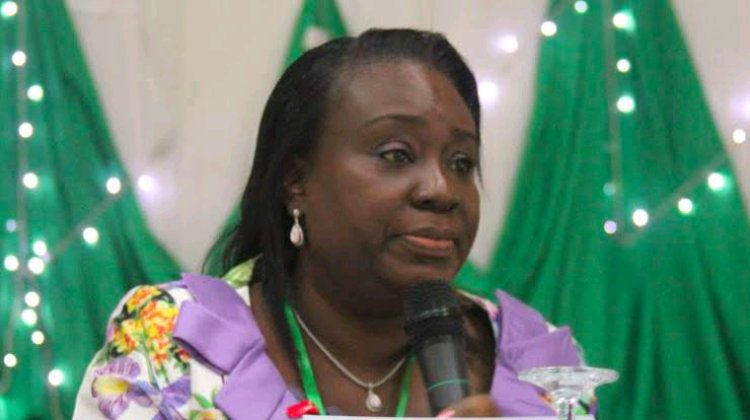HND-B.Sc Dichotomy : FG Mandates One-Year Training for HND Graduates Before Officer Cadre Conversion
Despite a bill passed in 2021 by the Ninth National Assembly to end the HND-B.Sc dichotomy, it was not signed into law by former President Muhammadu Buhari. Consequently, the NBTE introduced a one-year top-up program for HND holders to obtain a bachelor's degree.

The Head of the Civil Service of the Federation, Dr. Folasade Yemi-Esan, announced that workers with Higher National Diplomas (HND) must complete a one-year mandatory training before their conversion from the executive to officers cadre. This statement was made during a virtual interactive session with civil servants in commemoration of the 2024 Civil Service Week.
The training program aims to bridge the gap between polytechnic-awarded HNDs and university degrees, a long-standing issue debated by the National Universities Commission (NUC) and the National Board for Technical Education (NBTE). Despite a bill passed in 2021 by the Ninth National Assembly to end the HND-B.Sc dichotomy, it was not signed into law by former President Muhammadu Buhari. Consequently, the NBTE introduced a one-year top-up program for HND holders to obtain a bachelor's degree.
READ ALSO :Senator Karimi Launches Bursary Awards for Kogi West Students
During the session, Yemi-Esan explained that the curriculum for HND and B.Sc holders differs significantly, necessitating the mandatory training for HND graduates before their conversion to officers' cadre. This clarification was in response to a query about the HND-B.Sc dichotomy in the civil service from Adebayo Hassan, a Grade Level 14 civil servant.
Yemi-Esan emphasized the importance of accessible, inclusive, and high-quality education, aligning with the theme of the 2024 Civil Service Week, "Educate an African Fit for the 21st Century: Building Resilient Education Systems for Increased Access to Inclusive, Life-long, Quality and Relevant Learning in Africa." She highlighted that the Nigerian Civil Service is leveraging learning and development to enhance its workforce's capacity to meet national priorities.
RECOMMENDED FOR YOU:World Bank Awards Oyo N3.5bn for Renovation of 105 Public Schools
Additionally, Yemi-Esan discussed the implementation of a Performance Management System (PMS) in the Nigerian Civil Service to address the demands for greater efficiency. The PMS Policy and Guidelines have been distributed to all ministries, extra-ministerial departments, and agencies, with core implementation teams established. Permanent Secretaries will drive the implementation, with performance contracts cascaded to the last officer in each ministry, enabling performance assessment based on Key Performance Indicators.
She also noted the ongoing digitalization of work processes within the Civil Service, including the digitalization of personal and policy files and the implementation of digital transaction workflows for official correspondences through the Enterprise Content Management solution.





